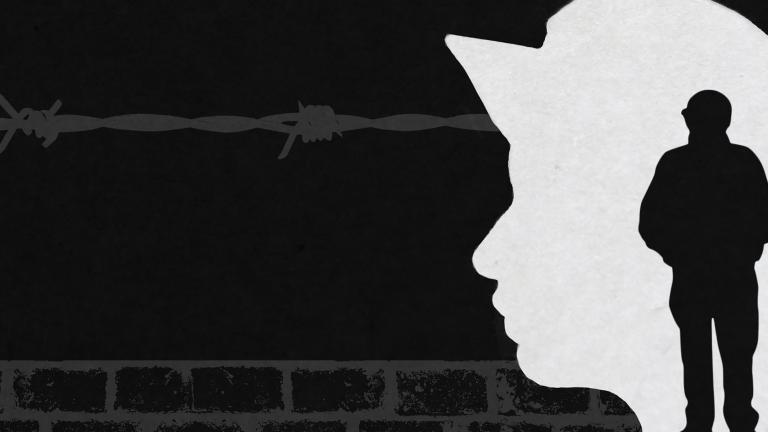This release is more than two years old
This release is more than two years old. For additional information, please contact Amanda Gaudes from our Media Relations team.
News release details
Just over 80 years ago, the notorious Warsaw Ghetto was sealed off by brick walls, barbed wire and armed guards. Jewish inhabitants caught trying to escape were shot on sight. The Nazis controlled food supplies in the ghetto, with starvation and disease killing thousands each month.
Winnipeg Holocaust survivor Dr. Stefan Carter (born Reicher) was there as a teenager. It’s the place where he was separated from his parents, never to see them again.
Dr. Carter will share his memories on January 27 in a special online event being hosted by the Canadian Museum for Human Rights in partnership with the Jewish Heritage Centre of Western Canada. His story has been part of an in‐gallery exhibit since the Museum opened in 2014, consisting of clips from a video‐recorded oral history.
Eugene Bergman was also a child in the Warsaw Ghetto. He was permanently deafened when a Nazi soldier hit him in the head with a rifle butt. Bergman’s story will be told at the event through a 60‐minute film by Deaf director Alexander Genievsky, blending eloquent American Sign Language (ASL) interpretation, re‐enacted historical vignettes, professional narration, and original music.
WHAT: Memories of the Warsaw Ghetto: Online film screening, followed by discussion with Holocaust survivor
WHEN: 12 p.m. to 1:45 p.m. on Wednesday, January 27 (International Holocaust Remembrance Day)
WHERE: Live on Zoom (online). Please register in advance. Free.
The interactive discussion following the film will be moderated by Daniel Stone, Professor Emeritus of History at the University of Winnipeg and an expert in Jewish and Eastern European history. It includes an audience question‐and‐answer session.
January 27 was proclaimed as International Holocaust Remembrance Day by the United Nations in 2005. It is intended as a tribute to the memory of the victims of the Holocaust and encourages a commitment against antisemitism, racism, and other forms of discrimination that lead to violence and human rights abuses against identifiable groups of people.
This release is more than two years old
This release is more than two years old. For additional information, please contact Amanda Gaudes from our Media Relations team.


